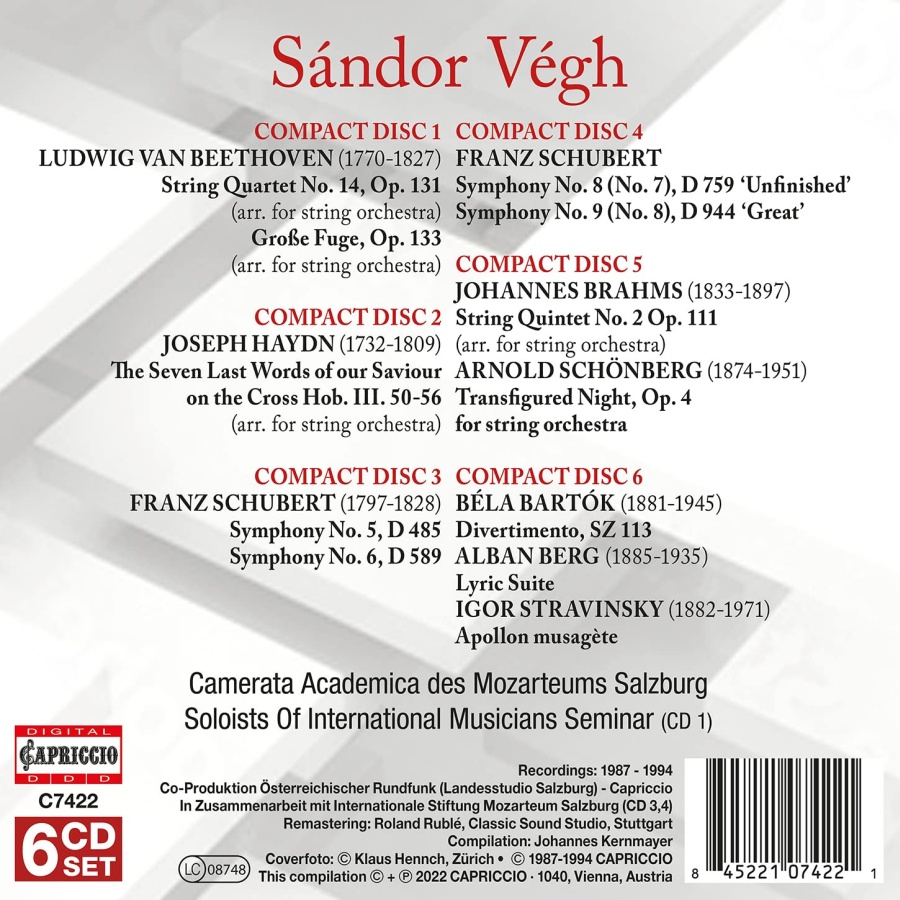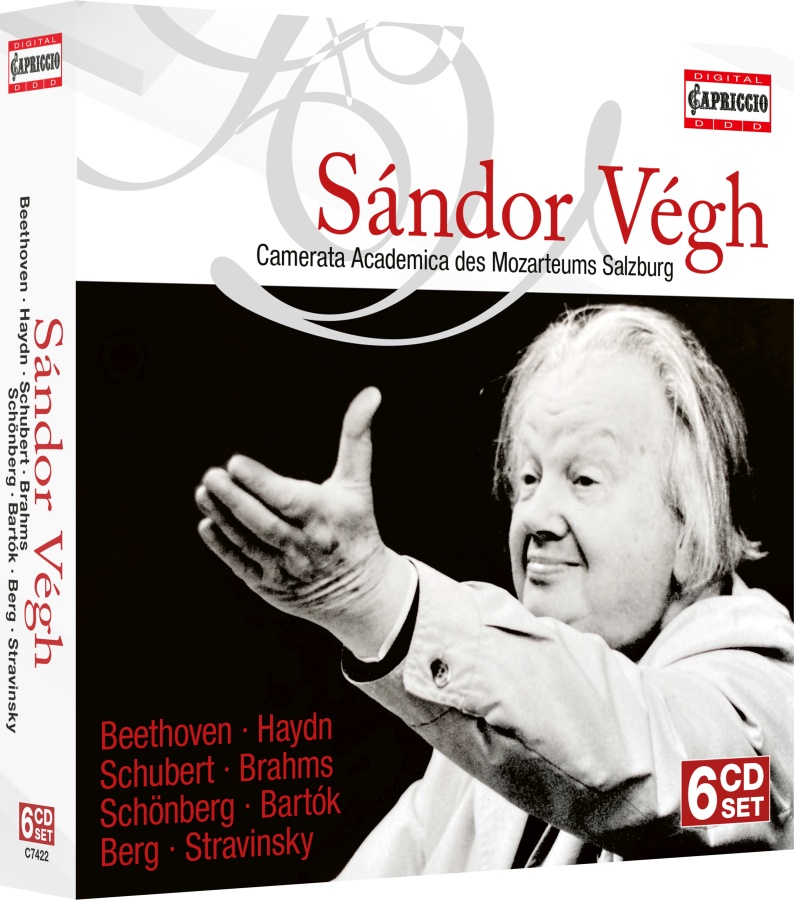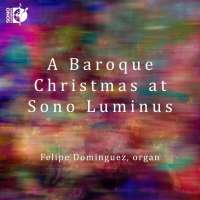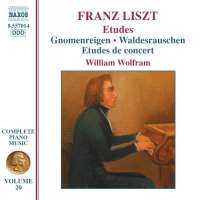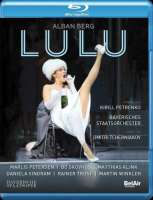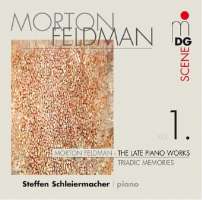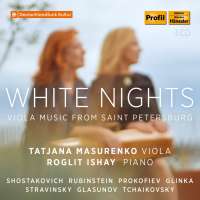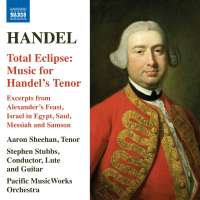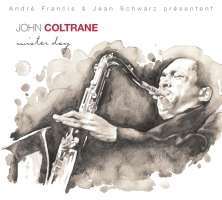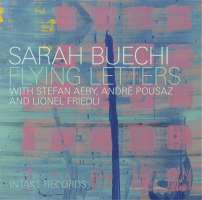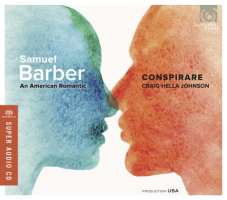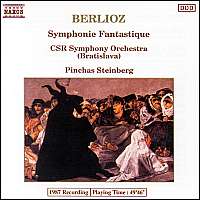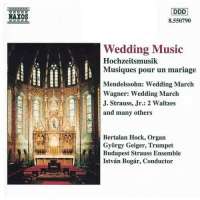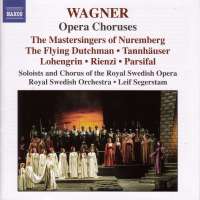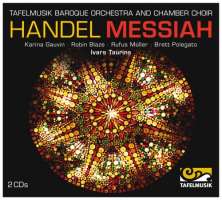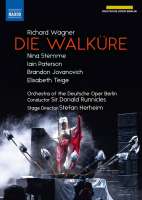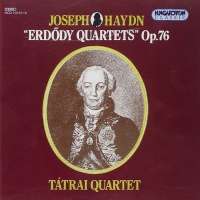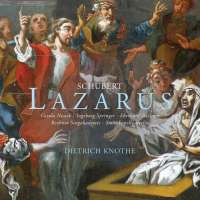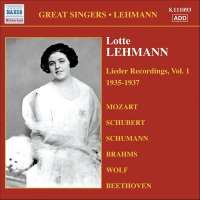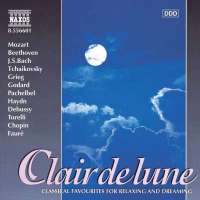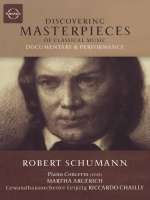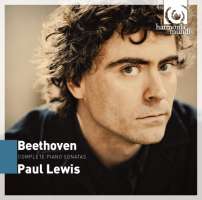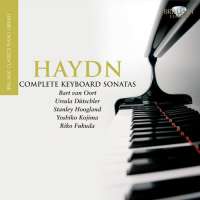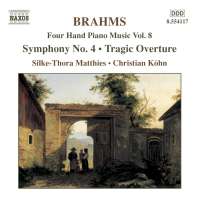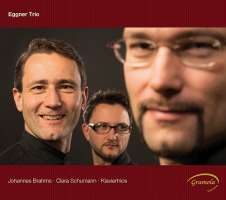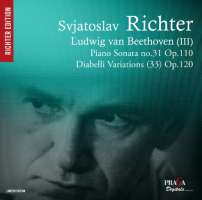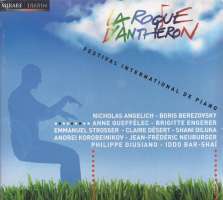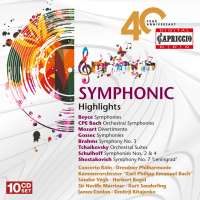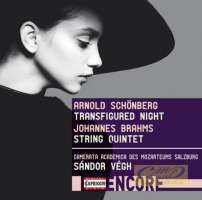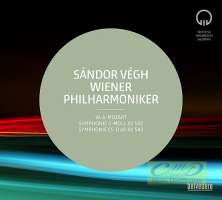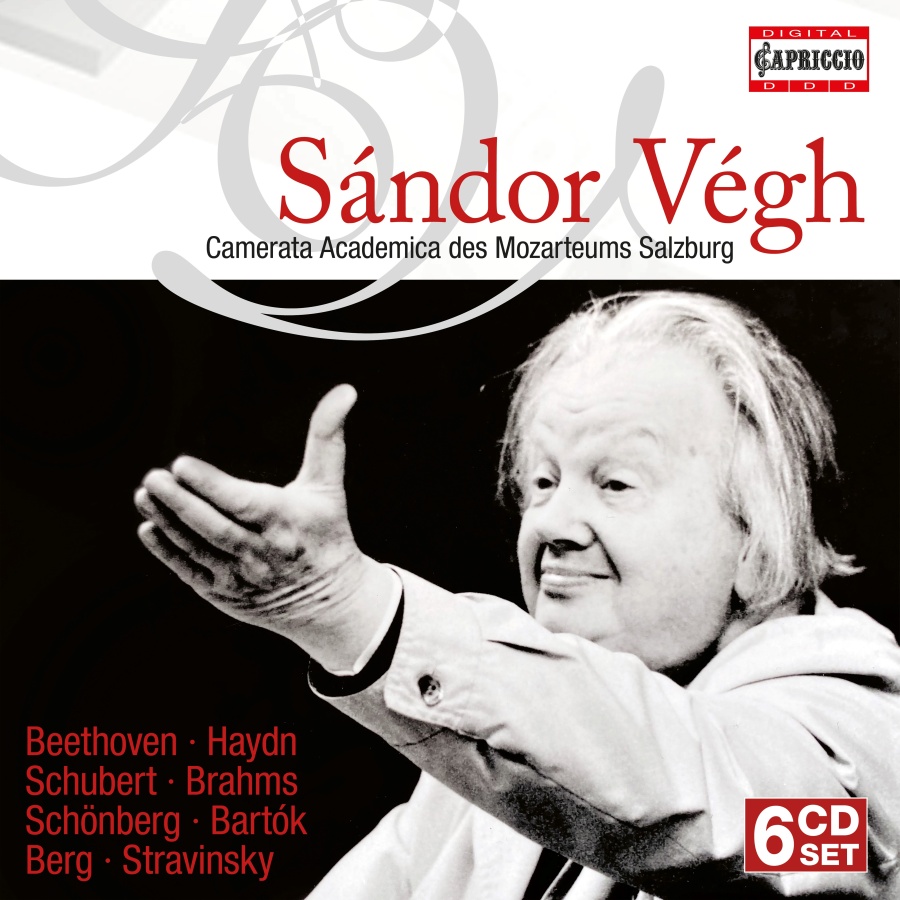
kompozytor
różni kompozytorzy
tytuł
Sándor Végh
pełny spis kompozytorów
Beethoven, Ludwig van;
Haydn, Joseph;
Schubert, Franz;
Brahms, Johannes;
Schönberg, Arnold;
Bartok, Bela;
Berg, Alban;
Stravinsky, Igor
Haydn, Joseph;
Schubert, Franz;
Brahms, Johannes;
Schönberg, Arnold;
Bartok, Bela;
Berg, Alban;
Stravinsky, Igor
wykonawcy
Végh, Sandor;
Camerata Academica des Mozarteums Salzburg
Camerata Academica des Mozarteums Salzburg
nr katalogowy
C 7422
opis
Sándor Végh was a supreme musician and one of those few conductors who possessed indefinable qualities. Whatever he touched – especially when performing with his Salzburg Camerata – it was always musical, light and exciting. He never indulged in extremes of tempo and volume, focusing instead on the effectiveness of phrasing and sparkle, making even the least of Mozart’s occasional pieces sound like works of ardent genius. This box proves (if it needed proving) that these skills also applied to the output of other composers, from those of the First Viennese School to the Second Viennese School and beyond. His Schubert Symphonies are pure classical joy; his Transfigured Night a manifestation of late-romantic beauty; his Bartók idiomatic and highly attractive.
•Beethoven: String Quartet No. 14 in C sharp minor, Op. 131
•Lyric Suite - three movements for string orchestra (1928)
•Brahms: String Quintet No. 2 in G major, Op. 111
•Haydn: The Seven Last Words of Our Saviour on the Cross (Orchestral version, 1786)
•Schoenberg: Verklärte Nacht, Op. 4
•Schubert: Symphony No. 5 in B flat major, D485
•Schubert: Symphony No. 6 in C major, D589
•Schubert: Symphony No. 8 in B minor, D759 'Unfinished'
•Schubert: Symphony No. 9 in C major, D944 'The Great'
•Stravinsky: Apollon musagète
Works:
•Bartók: Divertimento for Strings, Sz. 113Beethoven: Grosse Fuge in B flat major, Op. 133
•Beethoven: String Quartet No. 14 in C sharp minor, Op. 131
•Lyric Suite - three movements for string orchestra (1928)
•Brahms: String Quintet No. 2 in G major, Op. 111
•Haydn: The Seven Last Words of Our Saviour on the Cross (Orchestral version, 1786)
•Schoenberg: Verklärte Nacht, Op. 4
•Schubert: Symphony No. 5 in B flat major, D485
•Schubert: Symphony No. 6 in C major, D589
•Schubert: Symphony No. 8 in B minor, D759 'Unfinished'
•Schubert: Symphony No. 9 in C major, D944 'The Great'
•Stravinsky: Apollon musagète
nośnik
CD
x 6
gatunek
Muzyka klasyczna
producent
Capriccio
data wydania
04-07-2022
EAN / kod kreskowy
845221074221

(Produkt nie został jeszcze oceniony)
cena 109,00 zł
lubProdukt dostepny w niewielkiej ilości.
Wysyłka w ciągu 3 dni roboczych
Darmowa wysyłka dla zamówień powyżej 300 zł!
Darmowy kurier dla zamówień powyżej 500 zł!
sprawdź koszty wysyłki